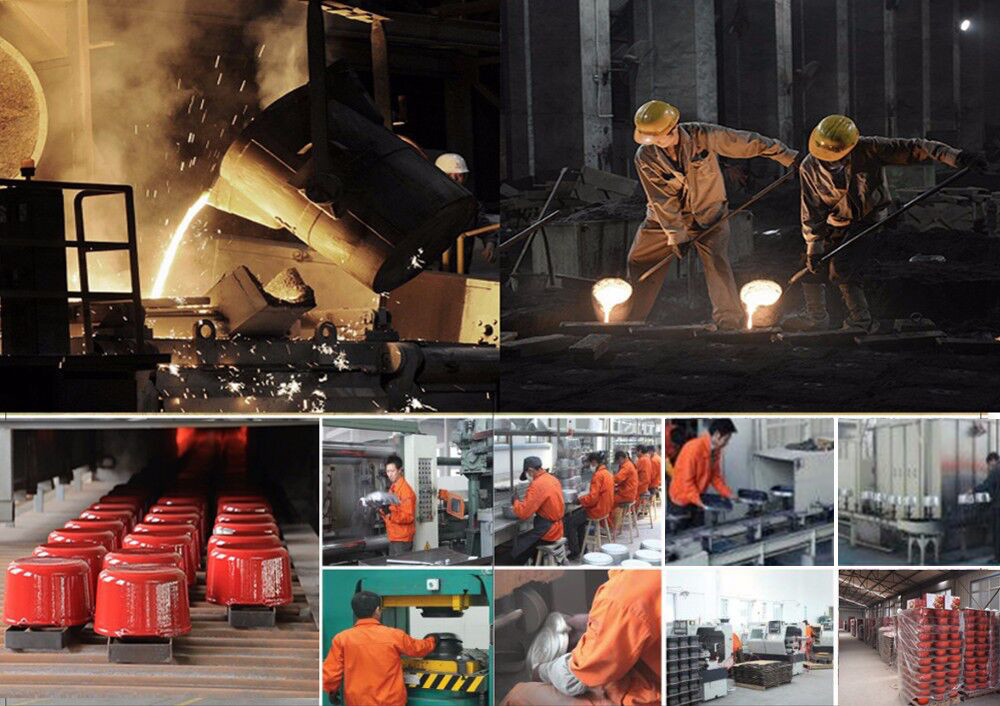- 150m Southwards, West DingWei Road, Nanlou Village, Changan Town, GaoCheng Area, Shijiazhuang, HeBei, China
- monica@foundryasia.com
Nov . 08, 2024 15:19 Back to list
cast iron flat product
The Versatility and Durability of Cast Iron Flat Products
Cast iron is a material that has been utilized for centuries, known for its incredible strength and durability. Among its various forms, cast iron flat products have established themselves as essential components in numerous industries, particularly in construction, manufacturing, and culinary fields. This article will explore the attributes, applications, and benefits of cast iron flat products.
Understanding Cast Iron
Cast iron is composed primarily of iron, carbon, and silicon. The unique microstructure of cast iron, created during the cooling and solidification process, results in various grades of cast iron, each possessing distinct mechanical properties. This material is renowned for its ability to withstand high temperatures and resist deformation, making it an excellent choice for applications requiring mechanical strength and resistance to wear.
Types of Cast Iron Flat Products
Cast iron flat products come in several forms, including plates, sheets, and strips. These products can be manufactured in various thicknesses and sizes, catering to the diverse needs of different industries. Common grades of cast iron used in flat products include gray cast iron, ductile iron, and malleable iron, each tailored for specific applications.
1. Gray Cast Iron Known for its excellent machinability and damping properties, gray cast iron flat products are ideal for applications in machinery and engine components. 2. Ductile Iron With superior tensile strength and ductility, ductile iron flat products are often used in demanding applications, such as heavy machinery and automotive components. 3. Malleable Iron Often utilized for its corrosion resistance and versatility, malleable iron flat products are suitable for various industrial applications, including electrical fittings and construction materials.
Applications of Cast Iron Flat Products
cast iron flat product

Cast iron flat products find applications in a wide array of industries
- Construction In the construction sector, cast iron flat products are utilized for structural components, such as beams and columns. Their strength and durability make them ideal for supporting heavy loads. - Manufacturing The manufacturing industry relies heavily on cast iron flat products for machine bases, beds, and other components that require stability and precision. - Culinary In the culinary world, cast iron cookware, such as griddles and frying pans, have gained immense popularity due to their heat retention and even cooking properties.
Advantages of Cast Iron Flat Products
1. Durability Cast iron flat products are built to last. Thanks to their resistance to wear and tear, they can withstand harsh environmental conditions and heavy usage. 2. Cost-Effectiveness While the initial investment in cast iron flat products may be higher than alternative materials, their longevity and low maintenance requirements make them a cost-effective choice in the long run. 3. Thermal Properties Cast iron has superior thermal conduction properties, making it ideal for applications that require efficient heat distribution, particularly in cookware.
4. Versatility The wide range of grades and forms available means that cast iron flat products can be tailored to meet specific needs across various industries.
Conclusion
Cast iron flat products are indispensable in numerous sectors, thanks to their unparalleled strength, versatility, and durability. With the ability to withstand extreme conditions, they provide not only reliability but also economic advantages for businesses and consumers alike. As industries continue to evolve, the role of cast iron flat products remains significant, driving innovation while honoring a material that has stood the test of time. Whether in the construction of robust structures or the creation of exquisite culinary tools, cast iron continues to exemplify quality and resilience.
-
Best Cast Iron Frying Pan for Induction Cooktop – Durable & Non-Stick Skillet Supplier
NewsJul.08,2025
-
Best Cast Iron Skillet Quality High Performance Cookware for Grill, Pizza, & Stir-Fry
NewsJul.08,2025
-
Premium Cast Iron Pan Set – Durable, Nonstick & Versatile Cookware for All Kitchens
NewsJul.08,2025
-
Blue Cast Iron Dutch Oven – Premium Enamel Cookware for Kitchen & Baking
NewsJul.07,2025
-
Best Enamel Dutch Oven for Bread - White Enamel Cast Iron Dutch Oven Service & Pricelist
NewsJul.07,2025
-
3.5 Qt Enameled Cast Iron Dutch Oven – Durable, Versatile & Stylish Cookware for Every Kitchen
NewsJul.07,2025